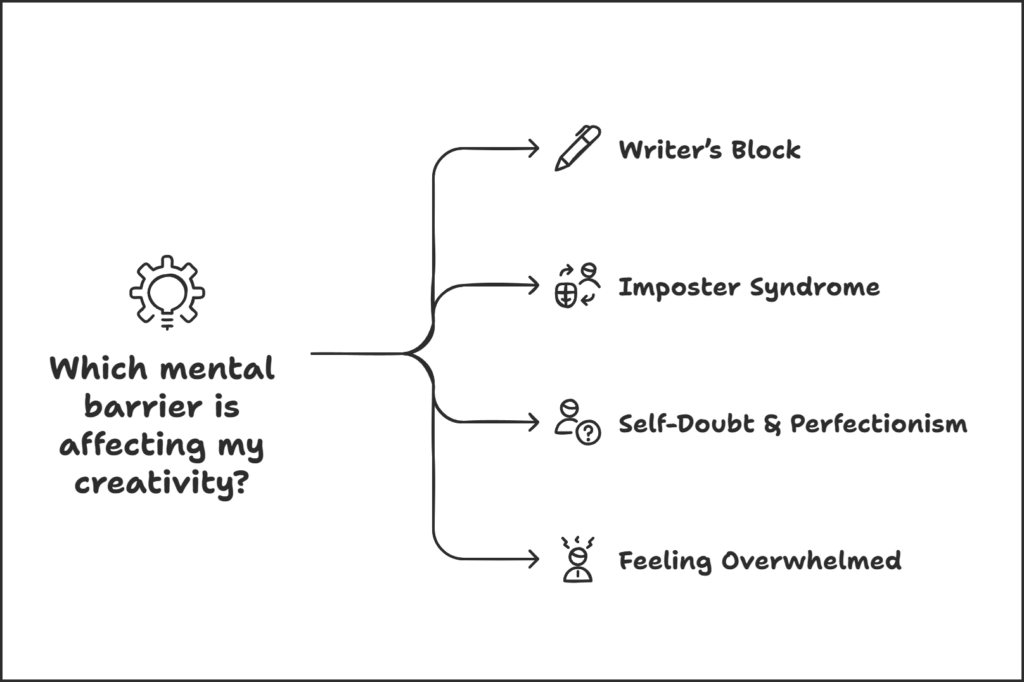Writing a book while managing a full-time job or being a business owner may seem overwhelming, but with the right strategy and mindset, it’s completely possible. Many published authors started their journey while juggling careers, proving that dedication, time management, and a solid writing process are the keys to success. Whether you’re working on your first book, a nonfiction book, or a creative writing project, this guide will help you turn your book idea into a reality.
I know this struggle firsthand. When I started writing my first book, I was working as a teacher and barely had time to breathe, let alone write. The dream of seeing my name on a published book felt distant. Then, I was running a business helping others get their book finished and published.
But now, with a publishing contract for my book and a launch date on the horizon, I want to share some of the ways I’ve developed to get the book done, even when you’re busy. If you’re in the same boat, take heart—this guide is designed to help you carve out time, stay motivated, and get your book written without sacrificing everything else in your life.
Time Management Strategies to help you Write Your Book
Setting Realistic Writing Goals
One of the biggest challenges first-time authors face is managing their word count within limited writing time. Establishing a writing schedule is essential. Start with small, achievable goals—perhaps 500 words per day or a single first draft chapter per week. Breaking the process down into manageable steps makes the entire book-writing journey more approachable.
When I began my own writing journey, I set a simple goal: write at least 300 words a day. Some days, I exceeded that goal; other days, I barely hit 100 words. But the consistency paid off, and soon, I had a rough draft that I could refine into something meaningful. Don’t underestimate the power of small daily wins—they add up fast.
Maximizing Small Time Blocks
Balancing work and writing requires finding hidden pockets of time. Successful professional writers often use these strategies:
- Early morning or late-night writing sessions: Find your most productive writing space, whether it’s a home office or a cozy coffee shop. Wake up 30 minutes earlier or stay up 30 minutes later to write.
- Lunch breaks: Instead of scrolling through social media, dedicate this time to outlining or drafting.
- Commuting time: If you use public transportation, consider brainstorming ideas or listening to book-writing podcasts for inspiration. Leverage dictation software to “write” while driving or walking.
- Weekend deep dives: Dedicate longer sessions to writing, polishing your first draft or Prioritize your book by scheduling writing sessions like appointments.
For me, writing at a coffee shop became a ritual. The change of scenery helped me switch into ‘writer mode’ after a long workday. I also find it helpful to schedule writing retreats for myself where I leave home for 24-48 hours of dedicated writing time.

Using Tools & Templates
Writing tools can significantly enhance efficiency. Book writing software like Scrivener or Google Docs helps organize chapters, and formatting tools ensure your manuscript is ready for self-publishing or traditional publishing. Templates are particularly useful for structuring your nonfiction book or novel’s roadmap, helping you stay on track and avoid procrastination.
I discovered the power of using a book template when I was deep into my second draft. I had hit a wall, unsure of how to structure my ideas. A simple nonfiction template changed everything, allowing me to see my book’s roadmap clearly. If you’re feeling stuck, templates might be the game-changer you need.
Creating Accountability
Staying motivated can be challenging, especially when facing writer’s block. Here’s how to maintain momentum:
- Join a writing group: Engaging with published authors or fellow aspiring writers keeps you inspired.
- Use social media for accountability: Share updates about your writing progress.
- Set deadlines: Having a clear timeline for your rough draft, second draft, and proofreading stages ensures you stay on schedule.
- Reward yourself: Celebrate small milestones—finishing a chapter, reaching a set word count, or completing a full draft.
- Hire a coach: a great writing coach will help you work through the mindset issues that keep you from starting (or finishing) your book but will also help you with positioning and marketing tools.
I remember the first time I publicly announced that I was writing a book. At first, I was terrified—what if I never finished? But that accountability drove me to keep going. If you’re struggling, try sharing your goal with a friend or an online writing community.
Overcoming Writing Challenges When You’re Short on Time

Writing a book is already a big challenge, but when you’re short on time, it can feel impossible. Here are some common writing hurdles and how to tackle them:
Writer’s Block
There will be days when the words just won’t come. To push through writer’s block:
- Set a timer for 10 minutes and write anything—even if it’s nonsense.
- Change your writing space—try a coffee shop, a library, or a new room in your house.
- Use writing prompts to spark ideas and get unstuck.
- Give yourself permission to write badly—first drafts don’t need to be perfect.
Imposter Syndrome
Many new writers struggle with feeling like they aren’t good enough. To silence self-doubt:
- Remind yourself that even bestselling authors have moments of insecurity.
- Keep a folder of encouragement—positive feedback, kind comments, or reviews.
- Focus on progress, not perfection—every word written is a step forward.
- Surround yourself with supportive writing communities that build you up.
Self-Doubt & Perfectionism
Perfectionism is the enemy of progress. If you find yourself over-editing before finishing:
- Set a deadline for your rough draft—write now, edit later.
- Adopt the “done is better than perfect” mindset.
- Use the Pomodoro technique—write in short, focused bursts to keep momentum.
- Remember, your first draft is just the beginning—you can refine it later.
Feeling Overwhelmed by the Process
Writing an entire book can feel daunting, but breaking it down makes it easier:
- Focus on one chapter at a time, rather than the entire book.
- Use a writing roadmap or outline to guide your progress.
- Set mini-milestones and celebrate small wins.
- If you feel stuck, skip ahead and write a different section.
When to Seek Help Writing Your Book
I’ve never met a writer with the time or expertise to handle every aspect of book production. Hiring a professional editor can refine your manuscript, while a professional cover design will make your book stand out. If your goal is to become a bestselling author, investing in quality editing and formatting is crucial.
When I reached the editing stage, I was hesitant to invest in a professional editor. But after receiving my first round of edits, I realized how much stronger my book became with an expert’s perspective. If you’re serious about publishing, consider outsourcing where needed—it makes a world of difference.
Moreover, research has shown that hiring professional help can significantly impact your book’s success. According to A Comprehensive Study of Business Book ROI, professionally edited and formatted books tend to perform better in sales, credibility, and reader engagement. The study found that books with professional editing and cover design saw higher reader retention and were more likely to become bestsellers. This underscores the importance of treating your book like a serious business investment.
If you’re on the fence about hiring help, consider this: a well-edited book is not just easier to read—it’s more likely to receive positive reviews, rank higher on Amazon, and create lasting impact. A professional touch can elevate your book from good to great, making it a valuable asset for years to come.
Write a Book, Even if You Think You Don’t Have Time
Writing your own book while working full-time is challenging, but with the right writing habits, tools, and persistence, it’s absolutely achievable. The key is to take small, consistent steps. Remember, even great writers like Stephen King started somewhere. Whether you’re aiming for self-publishing on Amazon or pursuing traditional publishing, the process of writing a book is a rewarding journey.
I know firsthand that it’s easy to put off writing, to tell yourself that you’ll start next week, next month, or next year. But here’s the truth: there’s never a perfect time to write a book. The best time is now. If you dream of becoming a published author, take action today.
Ready to start your book-writing journey? Get access to the Book Writing Starter Kit today and take the first step toward becoming a published author!
AuthorROI. (2024). A comprehensive study of business book ROI. AuthorROI. https://authorroi.com/wp-content/uploads/2024/10/A-Comprehensive-Study-of-Business-Book-ROI.pdf


